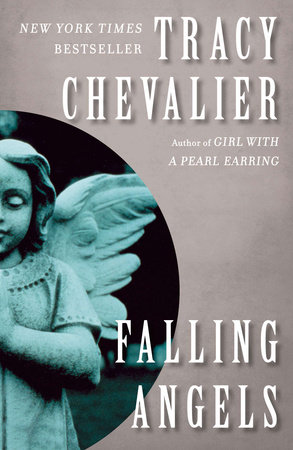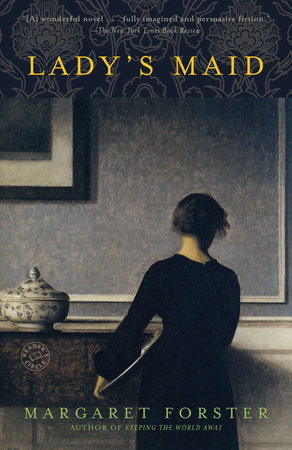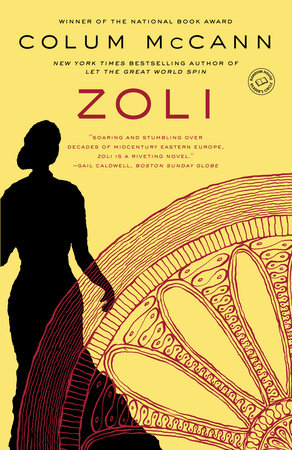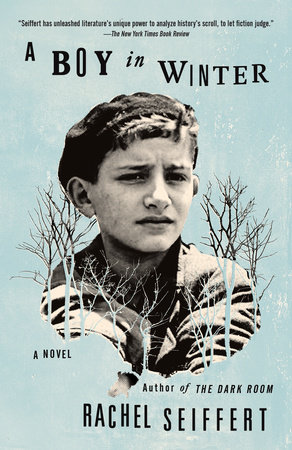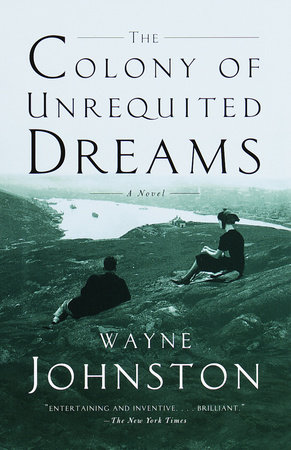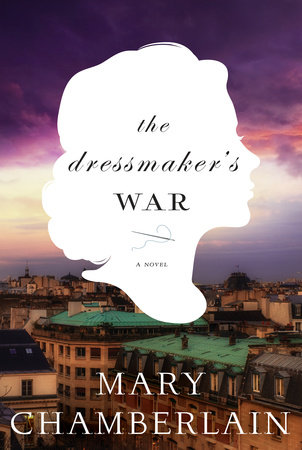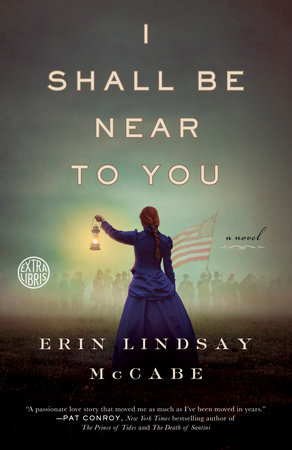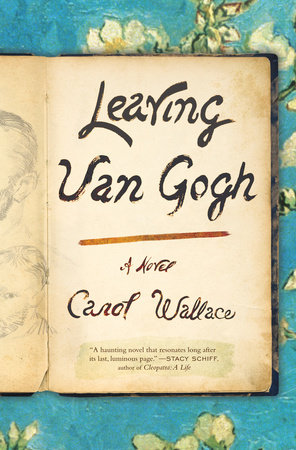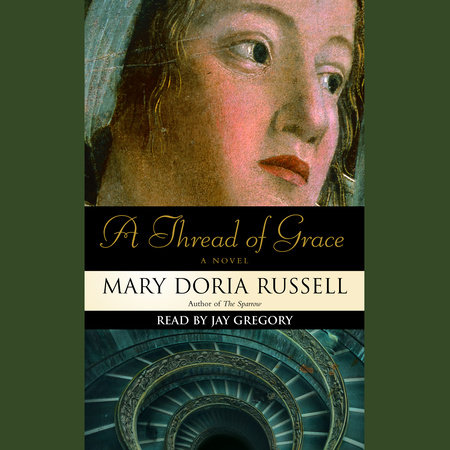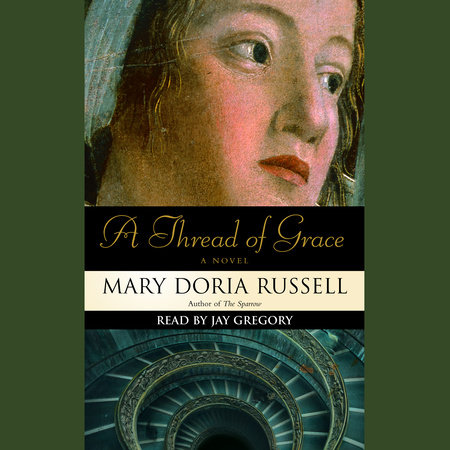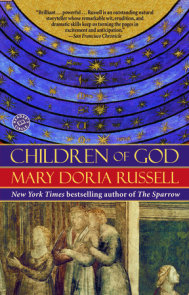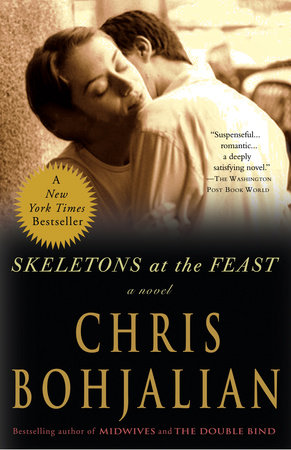Author Q&A
A Conversation with Mary Doria Russell
QQ: What inspired you to write A Thread of Grace?
Mary Doria Russell: Shortly after my conversion to Judaism, I came across Alexander Stille’s book Benevolence and Betrayal: Five Italian Jewish Families Under Fascism. The section called "The Priest, the Rabbi and the Aviator" was so dramatic, and so surprising, I set the book aside. I knew that I had to write about that era of Italian history somehow. When I mentioned this to a Polish Catholic friend, Maria Rybak, she told me a story about her aunt, who witnessed a Gestapo roundup of Jews during the war. "Never judge those of us who lived through those times," Maria’s aunt told her. "I saw a Jewish woman standing in the back of a truck with a baby in her arms. A lady standing in the crowd near me said, ‘Give me your child!’ The woman in the crowd could have been beaten for offering to take that baby. The mother had to decide: give her baby away or take the child with her to God knows what. Until you can imagine that, you can’t understand what it was like for us." So one of my goals with this novel was to recreate the immediacy of decisions like that. I wanted readers to buy in to decisions the characters made, and then "live" with the consequences as the story progressed. There was another moment that gave impetus to the writing of this story. One night I watched a PBS special about the 1944 Allied invasion of Normandy. A French woman was interviewed because her house was right in the middle of what became a battlefield. She and her kids hid in a cellar hour after hour, while mortars and machine gunfire exploded above them. When the noise finally stopped, she and the kids came upstairs into . . . nothing. The house had been blown to bits. Now, that woman understood the historic moment and the importance of that battle, and she was grateful she and her children had survived. But what stuck in my mind was her final lament: "I had just finished wallpapering the hallway." You can see how her remark came to be reflected in my novel.
QQ: It took you seven years to write A Thread of Grace. Why?
MDR: Well, first of all, there was a ton of research to do about the era, the war, the issues, the characters, but there were a lot of factors that slowed things down–primarily the fact that I became a card-carrying member of the Sandwich Generation. Just as menopause was hitting me like a brick upside the head, my husband’s dad was dying of congestive heart failure; Don’s mother is now ninety, and lives in Illinois, despite my warmest desire that she be nearer. My own mom, who lived in New Hampshire, fought ovarian cancer for a grueling fifty-five months. Two days ago, we thought my father would be going in for open-heart surgery, but it turned out he didn’t need it after all. The adrenaline is still draining out of my system, thirty hours later. Let’s see. . . my son learned to drive and started to date while I was working on A Thread of Grace, and got his heart broken, and had a minor accident, and applied to colleges. He leaves the nest for a semester at a time, and got straight A’s his freshman year, but comes back every few weeks to leave dirty dishes in the sink. Oh, and the collie died in my arms after running up spectacular vet bills, and then we got a golden retriever puppy; I was housebreaking Leo while writing about April 1944. Then I got myself a three-year-old rescue dachshund from Petfinder.com while editing the manuscript, just because I wanted her, dammit. And she is adorable, but the upshot is, my life is just as full of distractions and responsibilities and self-inflicted complication as everybody else’s. So that’s why A Thread of Grace took seven years to finish. I gave up at least once a week, but I have an almost pathological drive for task completion, and e-mail from readers (some of whom have become dear friends) kept me going.
QQ: Did you have a day job when you started writing? Has the success of the books changed your life much?
MDR: I was a PTA mom while writing my first two novels, The Sparrow and Children of God. We could afford to have me stay at home to raise Danny because my husband, Don, is a software engineer who makes a good buck and has never been out of work a single day since graduating from the University of Illinois, back before the earth’s crust cooled. When we moved to the Cleveland area in 1983, we were able to buy a lovely house in South Euclid for a very modest price, so we have never been burdened by unreasonable debt. Our son has always gone to the quite wonderful public schools here. The success of the first two books allowed me to fund my son’s college tuition at the University of Toledo, but he’s helped a lot by getting fabulous grades and a couple of generous merit scholarships.My big personal indulgence has been to hire Terry Wade and Daphne Robinson, who come once a week to keep the house up to standards my clean-crazy Italian nonna would have admired. You may notice that Teresina and Dafne do the same for Mirella Soncini in A Thread of Grace.
QQ:What are your favorite books, and what makes them special to you?
MDR: In science fiction, two books stand out. Ursula K. Le Guin’s The Left Hand of Darkness was the first novel I read twice, and then again every few years. She brought an anthropological sensibility to science fiction that I appreciated. There were multiple cultures, multiple languages, and the inevitable misunderstandings that result when a stranger is coping with utterly foreign concepts. I loved the device of an unreliable narrator, and reread this book before beginning The Sparrow, to study how she used literary aikido on her readers. The second book is Walter M. Miller’s A Canticle for Leibowitz. That book, too, is decades old, but stands up to rereading well. Again, there is a theme of well-intentioned misunderstanding of language, and a sort of archaeological approach to science fiction, this time with an appealing religious twist: after a nuclear holocaust, literacy is preserved in isolated Catholic monasteries. Among more recent books, I lean toward the kind of exquisite and hilarious observation of contemporary society that Karen Joy Fowler provides in The Jane Austen Book Club, and I loved her earlier World War II home front novel The Sweetheart Season. Karen has a way of making devastatingly funny remarks about less-than-admirable behavior, without ever being nasty or hurtful to the person involved. Another author whose work is both laugh-aloud funny and ironic, but also slyly sweet, is David Sosnowski. In his novel Vamped, he takes modern American culture and twists it around a single fictional fact: what if vampires were not only real, but eventually vamped nearly the entire population of the world? (Each meal makes a new vampire–a logical outcome of vampirism nobody else seems to have noted.) David makes you believe that this is just how America would react: with marketing campaigns for vacations in Alaska during the winter (no sun for six months, get it?) and illegal hunting trips for Òfree rangeÓ human blood. On my Web site, www.marydoriarussell.info, there’s a list of other books I’ve enjoyed, along with an annotated bibliography for A Thread of Grace.
QQ:What are some of your favorite films, and what makes them unforgettable to you?
MDR: I seem to gravitate toward big operatic movies: Lawrence of Arabia, The Godfather, Tombstone. I like a moral and literary structure, the sense of trying to live by some moral code, even when society is debased by war or crime. On the opposite end of the spectrum, there are comedies that my family and I watch until we know the entire script by heart. The Princess Bride and Young Frankenstein were early favorites. And then there’s Guy Ritchie’s Snatch, which is nonstop violence and obscenity, but somehow not offensive! And I love movies with great dancing: Bob Fosse’s All That Jazz, Carlos Saura’s flamenco Carmen.
QQ:What types of music do you like? Is there any particular kind you like to listen to when you’re writing?
MDR: There’s a theme here: big, emotional, layered stuff appeals to me. I love arena rock albums like Van Halen’s 5150 and Def Leppard’s Hysteria. To me, those have the same fist-in-the-air power that Beethoven’s odd-numbered symphonies have. And I love every other Sting album. Cerebral and beautiful–gotta love a guy who can work curriculum vitae into a pop song. And no, I don’t listen to music as I write. I have to have quiet for that.
QQ: Many writers are hardly overnight-success stories. How long did it take for you to get where you are today? Any rejection-slip horror stories or inspirational anecdotes?
MDR: Well, my story is that thirty-one agents turned The Sparrow down before Jane Dystel finally decided to take me on as a client. I don’t know if that’s inspirational or depressing, but it’s true.
QQ:What was the book that most influenced your life or your career as a writer–and why?
MDR: Seven Pillars of Wisdom (1935) by T. E. Lawrence. I saw the David Lean movie Lawrence of Arabia when it first came out in 1962. I was twelve then, and ripe for hero worship, and ready to imagine a larger world than Lombard, Illinois. I found a musty old copy of Seven Pillars, and to this day I remain fascinated by the book and the man who wrote it. I can name a number of direct effects of reading the book. Initially, I became interested in archaeology because of Lawrence’s early years, and that led me to anthropology, which sustained my interest through three degrees and years of professional work. I keep my hand in by editing the professional papers of friends in the field. Lawrence taught me that speaking more than one language opens doors to experiences you’d miss if you speak only English. Over the years, I’ve studied Spanish, Russian, French, and Croatian formally, with less studious stabs at Latin, Hebrew, Italian, and German. Each one has led me places I’d never have gone otherwise. Lawrence taught me that how you write is as important as what you have to tell about. Choice of word, rhythm, detail, editing, and overall structure make Seven Pillars literature, not just a military history or personal memoir. There are echoes of Lawrence’s experience in Deraa in my first novel, echoes of his war guilt in my third. I learned from Seven Pillars that intentions are irrelevant and regrets are useless: it doesn’t matter what you thought would happen, or that you meant no harm. Unintended consequences of good intentions is a theme I return to. I also caught the colon habit from reading his work: quod erat demonstrandum.
QQ:What are you working on now?
MDR: Dreamers of the Day is a novel about the 1921 Cairo Peace Conference. After the first World War, a handful of British and French diplomats got together in a nice hotel for a few days, took some fun camel rides out to see the pyramids and get their pictures taken, gossiped, flirted, argued–oh, yes, and invented the modern Middle East. I’ll come full circle with this one: T. E. Lawrence will actually be a character in the story, along with Lady Gertrude Bell, Winston Churchill, Chaim Weitzman, and Prince Feisal of the Hashemite royal family.
QQ: If you could choose one new writer to be "discovered," who would it be–and why?
MDR: I would love to give a leg up to a young poet named Gary ten the libretto for an opera based on The Sparrow by the Puerto Rican composer Raymond Torres-Santos. And Gary will be collaborating on a project with me soon.
QQ:What tips or advice do you have for writers still looking to be discovered?
MDR: Don’t rely on other writers to critique your work. Find passionate readers who know what they like and why. Ask them to read your drafts, and tell you what works and what doesn’t, where they didn’t buy a motive or believe in a character, when the dialog was clunky, or the description hackneyed. It’s thrilling to be part of someone else’s creative process, and good readers can be better than another writer for diagnosis and even prescription. I rely heavily on a team of friends who can criticize my work without breaking my heart or discouraging me, and I give them a lot of the credit for the success of my own novels.



